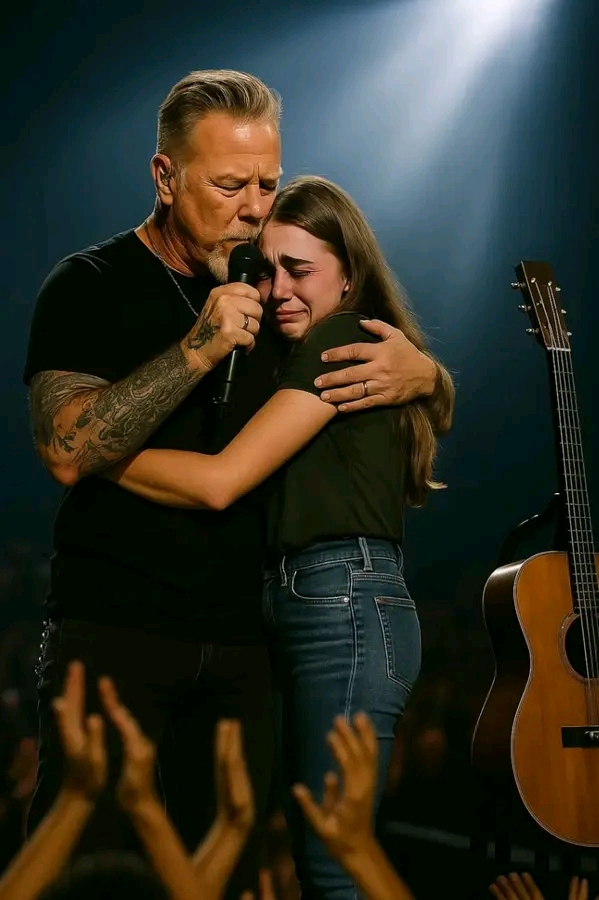Under the warm Austin night lights, the crowd fell into sudden silence. James Hetfield stopped mid-song, lowering his guitar as his eyes locked onto a faded cardboard sign held in the front row: **“You saved my life — twice.”** The words were simple, hand-drawn in black marker, but they hit harder than any power chord he’d ever struck. The stadium, moments ago roaring with the fury of “Master of Puppets,” now stood frozen in reverent stillness.
Hetfield took a step closer to the edge of the stage, his breath visible in the cool night air. “Who’s holding that sign?” he asked, his gravelly voice echoing through the hush. A young man, trembling, raised his hand — eyes glassy, clutching the sign like it was a lifeline.
The frontman of Metallica nodded slowly. “You saved *me*, too,” he said, voice cracking just enough to remind everyone that even legends bleed. The crowd erupted into applause — not the usual wild, fist-pumping kind, but the kind that carries tears, understanding, and years of shared survival.
“Every one of us up here,” Hetfield continued, glancing at Lars, Kirk, and Rob, “we’re not just playing music. We’re fighting the same fights you are — against the darkness, against the noise. But tonight, right here in Austin…” He paused, wiping a bead of sweat and maybe a tear. “…tonight, the light wins.”
Then he raised his guitar, strummed the opening chords of “Nothing Else Matters,” and the entire stadium joined in — tens of thousands of voices merging into one massive, trembling hymn. For a few minutes under the Texas stars, there were no walls between the stage and the crowd — only connection, gratitude, and the raw, healing power of music that saves lives — again and again.
